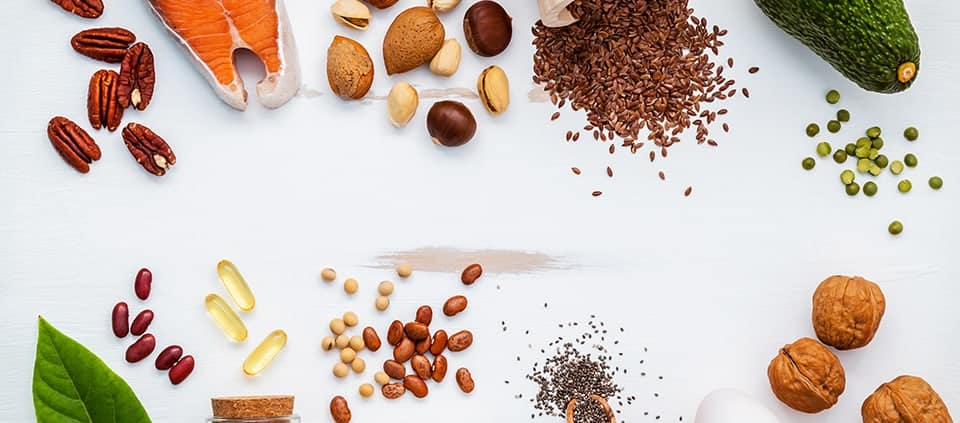Guide to Most Important Vitamins & Nutrients for Babies
Becoming a parent may have you thinking, “will my little one be getting enough nutrients?” After all, babies need A-LOT to grow healthy and strong. Fret no more & relax those stress lines because we are here to help! Here’s the full breakdown of the top Vitamins & Nutrients your little one will need, as well as everyday foods you can find them in!
- Calcium– These MILK-shakes bring all the babies to the yard (or in this case, the kitchen!) Calcium facilitates strong bones your little one needs while growing up. From things such as milk, cheese, yogurt, and tofu, Calcium can be found in a multitude of things (even orange juice!) Recipe to try: Pumpkin, Banana, & Yogurt Purée
- Fat – We’re talking about the ‘phat’ kind of fat. Healthy fats from whole sources help develop the brain, as well as the central nervous system. They also fuel the body and absorb Vitamins. Some Vitamins such as A, D, E, and K are fat soluble, meaning they can only be absorbed if there’s fat in your diet (aka you kind of, sort of need it!) Healthy fats are readily available in things such as avocado, nuts, eggs, cheese, and oils.
Recipe to try: Avocado, Corn & Cilantro Purée
- Folate – FO-dontbe-LATE adding this to your little one’s diet! Folate, also called Vitamin B-9, helps synthesize DNA and aids in normal cell growth. Folate can be found abundantly in leafy greens, lentils, bananas, beets, and parsley.
Recipe to try: Banana Berry Smoothie
- Iron – “Iron baby, do do, doo doo, do do!” This mineral is essential to creating healthy red blood cells, carrying oxygen, and building muscle. Good sources include beef, turkey, pork, spinach, beans, and prunes.
Recipe to try: Turkey, Carrot & Parsnip Purée
- Protein – No, you don’t just need it if you’re trying to become a body builder. Everyone needs it! Especially those who have a lot of growing to do. Protein builds and repairs all tissues in the body (muscles & organs!)
Recipe to try: Boy Choy, Ginger & Chicken Purée
- Carbohydrates – Only carbs on Tuesdays and Thursdays? Think again! Carbohydrates are several sugars linked together, providing energy for the brain tissues, muscles, and other organs. In other words, they are ESSENTIAL for growth and maintaining a healthy body weight. Besides milk, carbs can be found things such as grains and potatoes.
Recipe to try: Smashed Spuds
- Zinc – “Zoink! Oops, we mean- Zinc!” Zinc aids in digestion and metabolism, and children who don’t get enough could have stunted growth. It also helps the body resist infection. It can be found in foods such as nut butters, meats, and beans.
Recipe to try: Easy Green Beans
- Fiber –Fiber is the indigestible part of plant food that travels through our digestive system absorbing water along the way. Key to preventing constipation in infancy (and beyond!), Fiber can be found in things such as fruit, oats, barley, beans, and peas.
Recipe to try: Pear, Oats & Date Purée
- Iodine – Iodine is a very important mineral that helps your little one’s thyroid develop. The Thyroid gland controls release of hormones needed for metabolism, body temperature, blood cell production, and nerve function. It’s important to note that Iodine does not store within the body, so it’s an important source to intake each and every day! Iodine can be found in dairy products, meat, seafood, and fresh foods grown in soil.
Recipe to try: Healthy Tzatziki Sauce
- Magnesium– Magna-WHAT? Magnesium is the fourth most abundant vitamin in the body. Magnesium is vital for overall health, and it responsible for over 300 biochemical reactions. Great sources of this vitamin include leafy greens, beans, nuts, and whole grains. Magnesium is also linked to better sleep in infants (and in return better sleep for parents too!)
Recipe to try: Healthy Spinach and Artichoke Dip
- Vitamin A – Are you on the A team? Vitamin A promotes development via tissue repair, skin cell repair, and positive immune responses. Sources of Vitamin A include milk, cheese, eggs, and yellow/orange veggies like carrots, yams, and squash (just in time for Fall!)
Recipe to try: Autumn Root Veggie Medley
- Vitamin B – Vitamin B’s are the B-E-S-T! The top performers in the family are B2, B3, B6, and B12. They all aid in metabolism, energy production, and nervous system functionality. You can find Vitamin B in things such as meat, chicken, fish, nuts, eggs, milk, cheese, beans, and soybeans.
Recipe to try: Baby’s Beef Stroganoff
- Vitamin C– Welcome, the Vitamin that might be the most popular among just about everyone because of its defenses against sickness. It’s considered an anti-oxidant, while also helping you absorb iron. High volumes of Vitamin C can be found in citrus fruits, bell peppers, broccoli, and potatoes!
Recipe to try: Cantaloupe, Mango & Cardamom Purée
- Vitamin D– Summer may be over, but that doesn’t mean you can’t get your Vitamin D in! Best sourced via the sun, Vitamin D promotes bone and tooth formation, as well as calcium absorption. Besides the sun, you can find this Vitamin in fish such as salmon and mackerel.
Recipe to try: Salmon and Potato Purée





Leave a Reply
Want to join the discussion?Feel free to contribute!